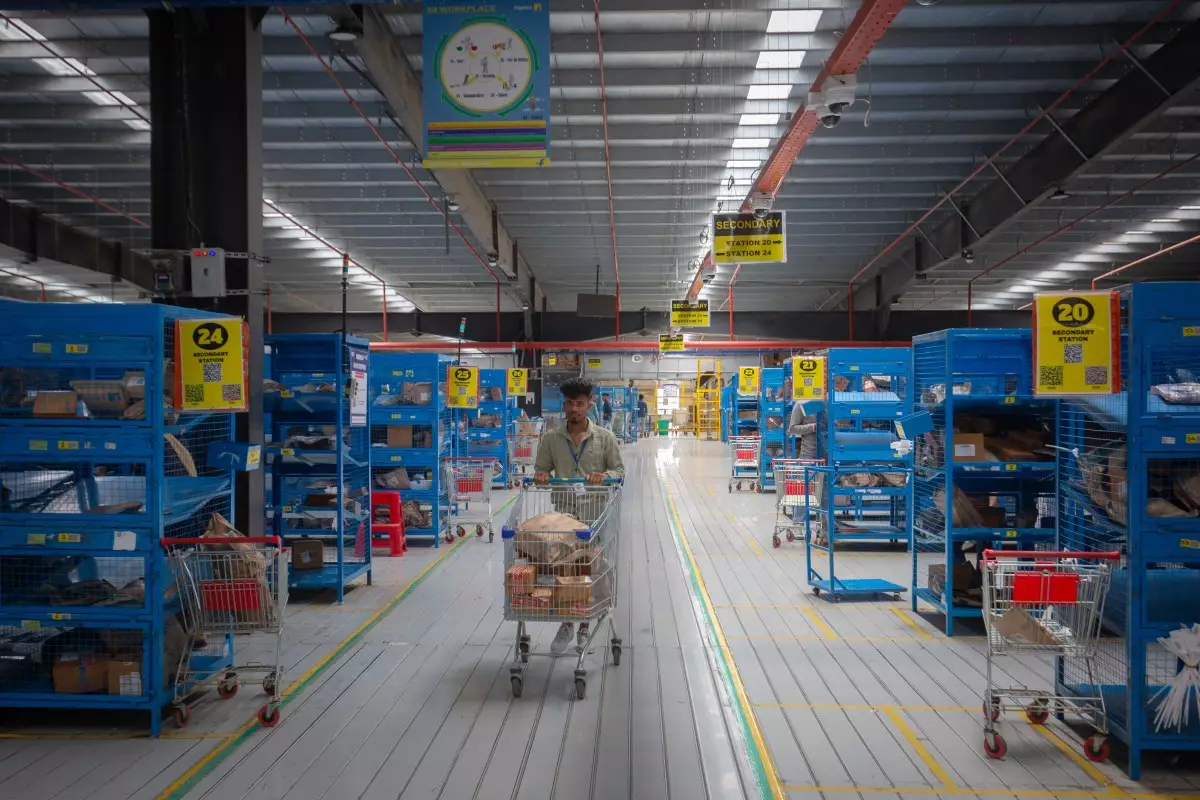In an era defined by rapid technological advancements, consumer expectations have evolved drastically. E-commerce platforms are under pressure to deliver items faster than ever. Myntra, India’s leading fashion e-commerce platform, recognizes this shift and is undertaking groundbreaking changes to meet rising consumer demands. With news emerging about its new four-hour delivery pilot program, it’s clear that Myntra is aiming to redefine the landscape of online shopping.
Myntra’s trial of a four-hour delivery service highlights a significant shift toward quick commerce, a sector experiencing rapid growth in India. The platform, backed by the Flipkart Group, has chosen key metropolitan areas such as Bengaluru and New Delhi for this trial. The adoption of quick commerce has been fueled by competitors that provide extremely fast delivery times, often as short as 10 to 15 minutes. This burgeoning trend is not merely about speed; it’s about reshaping consumer behavior and expectations in a competitive e-commerce environment.
The motivation behind this swift transition is crystal clear. Myntra’s internal assessments indicate that shorter delivery times significantly boost consumer purchasing behavior. The ability for customers to receive their fashion items on the same day transforms the shopping experience from a waiting game into an immediate gratification scenario. Traditional e-commerce models with delivery times of 2-3 days are now fated to become less appealing.
Myntra’s foray into rapid delivery is a strategic response to a broader trend in the Indian market. Other firms are successfully infiltrating the e-commerce space with ultra-fast delivery, compelling seasoned players like Myntra to reconsider their operational models. Despite Amazon’s current hesitance to engage in the race for quick commerce, Myntra’s aggressive approach exemplifies Flipkart’s adaptability and willingness to experiment with logistics.
The competitive nature of e-commerce in India also calls attention to a pattern where some quick commerce startups are beginning to incorporate fashion items into their offerings. With high return rates commonplace in the fashion industry, these startups are exploring returns to expand their consumer base. Thus, Myntra’s initiative is not only a reaction to changing consumer habits but is also a preemptive move against potential newcomers encroaching on its market share.
As Myntra navigates this new frontier, it has taken cautious steps by offering a limited selection of items during its quick commerce trial. This strategy aims to ensure high-quality experiences while testing the feasibility of faster logistics in the fashion category. Fashion has historically posed challenges for online platforms, primarily due to varied customer preferences and high return rates.
Yet, there lies an opportunity for Myntra to leverage data analytics to refine inventory management and forecast demand more accurately. Such strategies will not only enhance customer satisfaction but also minimize return rates—key for profitability in the e-commerce space.
The trajectory of quick commerce in India has been impressive, with startups like BlinkIt and BigBasket’s BB Now recording a substantial increase in gross merchandise value (GMV). TechCrunch estimates that these firms operate at an annualized GMV run rate exceeding $6 billion. This rapid growth signals a broader shift within consumer behaviors, and investors are closely monitoring the implications of this trend on the entire e-commerce sector.
In the context of the projected $50 billion e-commerce sales in India, the encroachment of quick commerce players is reshaping retailers’ strategies. Analysts from JPMorgan indicate that these firms have successfully captured market share from both traditional and modern trade retailers, highlighting a significant transition in how consumers are engaging with brands.
Myntra’s venture into four-hour delivery is a noteworthy example of how e-commerce platforms must evolve in response to consumer demand for speed and convenience. The company is not only competing with existing players but is also preparing for a competitive landscape that is rapidly changing due to quick commerce’s rise. As Myntra navigates this uncharted territory, its agility and willingness to innovate are paramount in sustaining its market position in India’s dynamic e-commerce ecosystem. The success of this initiative will likely define Myntra’s place in the future of online fashion retail.

